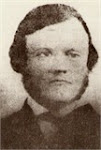Wisconsin's Past and Present: A Historical Atlas by Wisconsin Cartographers' Guild with an Introduction by William Cronon. An astonishingly excellent collection of maps. Most of the maps are the creation of six Wisconsin cartographers that are uniquely insightful.
The atlas is particularly strong on ethnic histories. Just an example, the series of maps on the native nations of Wisconsin helped me understand - at last - where the tribes came from and where they lived in Wisconsin.
You can sample the book on Google Books.
(One disappointment is the woefully inadequate & inaccurate assessment of railroads in the state.)
***
Nature's Metropolis: Chicago and the Great West (New York: W. W. Norton, 1991).
I've pitched this book before. It's a great read. It's won just a few prizes.
Bancroft Prize for 1992
Chicago Tribune's Heartland Prize for best non-fiction work of 1991
One of three nominees for the Pulitzer Prize in History, 1992
George Perkins Marsh Prize for 1992 for Best Book in Environmental History published in 1990 or 1991 given by American Society for Environmental History
Charles A. Weyerhaeuser Award for 1993 for the best book in forest and conservation history published in 1991 or 1992 given by the Forest History Society
Award for Outstanding Achievement Recognition to Nature's Metropolis by the Wisconsin Library Association Literary Awards Committee
Honorable Mention for 1992 to Nature's Metropolis in the John Hope Franklin Prize competition, American Studies Association
Geographic Society of Chicago Publication Award for 1991
A review:
http://www.duke.edu/~ekb6/Review,%20Nature's%20Metropolis-3.pdf.
A critical assessment of the book.
A summary of the book.
***
My third offering is The Decline and Fall of the British Aristocracy by David Cannadine. This intensely factual forms around a simple thesis: The British aristocracy plunged from the top of the world primarily because of the collapse of agricultural prices in the 19th century (circa 1880) and secondarily, the almost concomitant extension of suffrage to ever greater numbers of common people. The British aristocracy was a landed elite. Their wealth was almost entirely in the value of their lands for agriculture and the rents the lands could generate. I found the simplicity of the explanation very attractive; how many big things are really just that simple?
As described here:
In 1880, Cannadine informs us, the members of the British aristocracy (which he defines as landholders with 1,000 acres or more) were the "lords of the earth." They were a tiny minority, only 7,000 families in a country of millions. Yet this "tough, tenacious, and resourceful elite" owned four-fifths of the land in England, Ireland, Scotland and Wales.
Cannadine richly details the various ways in which the decline manifested itself. The fall was swift - it started and was completed within the span of a single lifetime. They had to sell, sell land, sell art, sell houses, sell it all. (When the going gets Toff, the Toffs get selling.)
At times the meticulous exhaustive detail can get to be a bit much, but the occasional skimming along to the next topic is permitted. His accomplishment is collecting such a vast amount of information, compiling it, and still managing to present it in an interesting the fashion.
One wonders why anyone would bother to write another book on the topic.
More books by Cannadine.
The book was written in part during a time of intense grief for Cannandine and his historian wife Linda Colley. The dedication to Cannadine's Aristocracy gives the stark facts: 'In memory of Harriet Fenella Saffron Cannadine, born 3 February 1988, died 19 March 1988.'
'With a cot death,' Colley goes on, 'you have no time to contemplate or prepare yourself. It's not like an illness, where someone is not very well, then getting worse, then at risk of dying. With this, 20 minutes ago your child was alive and now she's dead. You're left with the feeling that there must have been a mistake. Harry must be all right. In a couple of hours somebody will bring her round.'.
Cannadine felt exactly the same. 'I kept thinking, this is all a dream, I'm going to wake up and everything will be all right. And of course it isn't. It changes your life for ever.'
He recalls that time: 'We emigrated, sold a house, and had the birth and death of Harry all within six months. We grieved in different ways. You felt as though all your skin had been torn off and the nerve endings exposed, and all social interaction became unbearable. It has left me with a permanent sense of the random risk of catastrophe in life. I don't think I shall ever forget that. You lose all sense of the natural order of things - for instance, that it's natural for children to outlive their parents - even though you've only got to read Dickens to know that that's not necessarily true. It's not fear, but a recognition of the transient nature of the human condition.'
Colley takes up his thread: 'It made us different people. Once you know how completely and suddenly the earth can open up at your feet and the worst can happen it also, paradoxically, leaves you more afraid of everything else. David began to suffer very badly from vertigo, which he never had before. I would worry terribly if ever he was late. I'd think, the car has crashed, he's dead, he's been mugged. Yet at the same time you're not afraid of anything because you think, the worst has already happened
***
 Finally, if you want a good laugh at the expense of the British aristocracy, try out a goodish bit of PG Wodehouse, like the new paperback Just Enough Jeeves: Right Ho, Jeeves; Joy in the Morning; Very Good, Jeeves.
Finally, if you want a good laugh at the expense of the British aristocracy, try out a goodish bit of PG Wodehouse, like the new paperback Just Enough Jeeves: Right Ho, Jeeves; Joy in the Morning; Very Good, Jeeves. 


















No comments:
Post a Comment